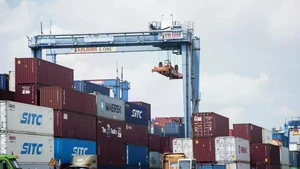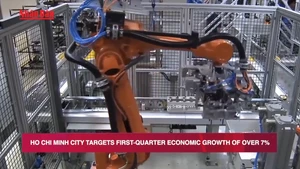According to statistics, Vietnam ranks among the top countries with the highest crypto asset ownership rates in the world. Specifically, Chainalysis, a New York-based American blockchain analysis firm, estimated that from 2022 to 2024, crypto asset inflow into Vietnam exceeded 100 billion US.
Meanwhile, Triple A, a crypto payment provider licensed by the Monetary Authority of Singapore, reported that approximately 17 million Vietnamese people own crypto assets, accounting for 17% of the population and ranking fifth globally.
Unlocking underground economic resources
Vietnam’s current tax law system already includes general provisions on value-added tax (VAT), corporate income tax (CIT), and personal income tax (PIT). If digital assets are officially recognised as legal property, related transactions will be subject to existing tax regulations.
However, since digital assets have not yet been clearly defined within Vietnam’s legal system, most transactions are currently conducted through international platforms or informal markets, creating difficulties in monitoring and tax collection.
Therefore, once digital assets are legally recognised and regulated, transactions will provide a strong foundation for the state to levy taxes on digital economic activities, enhancing budget revenues and enabling reinvestment in essential areas like education and technology. Moreover, aligning digital asset transactions with tax policies not only boosts revenue but also fosters a transparent and equitable business environment.
It is estimated that applying a 0.1% PIT rate, similar to that imposed on stock transactions, could generate over 800 million USD in tax revenue annually. In addition, trading platforms often charge fees ranging from 0.01% to 0.8% per transaction.
According to Dr Chu Thanh Tuan from RMIT University Vietnam, with a reasonable tax mechanism, Vietnam could secure a significant revenue stream from this market. A low transaction tax, modelled after stock trading tax policies, could be an effective approach.
In addition to transaction taxes, the government could also consider levying PIT on crypto investment gains or CIT on companies operating in this field.
If cryptocurrencies are categorised as investment assets, profits from trading could be taxed similarly to stocks or real estate. Crypto-related businesses may also be subject to the standard 20% CIT rate, as with traditional companies.
Another potential revenue stream for the government is licensing fees for crypto exchanges. Several countries have implemented such models, for instance, in Dubai (UAE), crypto projects are required to pay licensing fees. “If Vietnam adopts a similar system, the government could simultaneously regulate the market and generate non-tax revenue.”
A balanced taxation model needed
That said, designing an effective tax system should go beyond the goal of generating new revenue. It must also ensure that the policy does not weaken the market or trigger capital flight to other countries.
For example, India’s imposition of a 30% tax on crypto gains and a 1% tax on each transaction led to a 70% drop in domestic trading volume, as investors shifted to overseas exchanges.
If Vietnam introduces excessively high taxes or a complex tax regime, investors may move their activities to more crypto-friendly countries like Singapore or the UAE, resulting in potential revenue loss.
To attract investment while ensuring stable tax revenue, Vietnam needs a balanced tax model. A low transaction tax coupled with a capital gains tax within the PIT framework could maintain fairness without undermining the market.
Additionally, Vietnam should consider exempting cryptocurrencies from VAT, similar to practices in the European Union and Singapore, to avoid double taxation and maintain regional competitiveness.
Vietnam also needs to collaborate with international organisations to monitor cross-border transactions and prevent tax evasion. If a simple, competitive, and balanced tax system can be established, Vietnam could generate substantial revenue from cryptocurrencies while fostering a sustainable digital asset ecosystem.
According to Phan Duc Trung, Chairman of the Vietnam Blockchain Association, creating a legal framework for crypto assets would enable the state to collect taxes from transactions and reduce social risks associated with unregulated investments. Investors, in turn, would gain clarity on what constitutes a legally recognised transaction and enjoy protections under the national legal framework.
However, a key consideration is identifying the target demographic for the policy. If the aim is to attract domestic investors, it’s essential to consider competition with traditional investment channels like bank deposits, real estate, stocks, or gold. These channels already operate under well-established legal frameworks. Therefore, crypto exchanges will require a transparent mechanism, investor protection, and reasonable tax policies to become competitive.
If the goal is to attract foreign investors, managing capital inflow and outflow becomes critical. A crypto exchange must ensure transactional flexibility while implementing robust capital control measures to guard against financial volatility.
This is directly tied to tax policy: overly high or complicated taxes may deter international investors. Conversely, with sensible tax policies and smart capital management systems, Vietnam could emerge as a regional digital financial hub.
Previously, the Department of Tax, Fees and Charge Policy Management under the Ministry of Finance emphasised that tax policy is one of the biggest challenges in building a legal framework for digital assets. To preserve the market’s appeal, the government could consider offering preferential tax rates in the early stages. This would help encourage investment and promote the development of a robust digital asset ecosystem in Vietnam.
Nonetheless, mechanisms must be put in place to detect and prevent tax evasion and fraud within this sector. “Some countries have implemented blockchain technology to monitor and supervise digital asset transactions, ensuring that tax collection is transparent and effective. Vietnam could learn from these experiences to develop a tax administration system tailored to the local context,” the department stated.
















